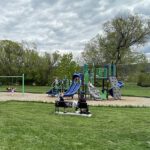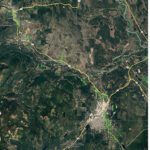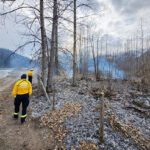Home »

B.C.’s COVID-19 response and latest updates for May 28
Adrian Dix, Minister of Health, and Dr. Bonnie Henry, B.C.’s provincial health officer, today (May 28) issued the following joint statement regarding updates on the novel coronavirus (COVID-19) response in British Columbia.
Today, we are announcing nine new cases, for a total of 2,558 cases in British Columbia.
There are 241 active cases of COVID-19 in the province, and 2,153 people who tested positive have recovered.
Of the total COVID-19 cases, 33 individuals are hospitalized, six of whom are in intensive care. The remaining people with COVID-19 are recovering at home in self-isolation.
Every health region in British Columbia has patients with COVID-19. Since the start of the pandemic, there have been 899 in the Vancouver Coastal Health region, 1,274 in the Fraser Health region, 127 in the Island Health region, 195 in the Interior Health region and 63 in the Northern Health region.
Today’s numbers reflect a small data correction. An additional case reported yesterday in the Vancouver Coastal Health region has been removed.
There have been two new COVID-19 related deaths in the last day in the Fraser Health region, for a total of 164 deaths in British Columbia. We offer our condolences to everyone who has lost their loved ones during the COVID-19 pandemic.
There has been one new health-care outbreak at the Nicola Lodge in the Fraser Health region. In total, 15 long-term care or assisted-living facilities and one acute-care unit have active outbreaks.
The outbreak the Mission Institution (Medium Security) federal corrections facility has now been declared over. This was one of the largest outbreaks that we have experienced in our province. An incredible effort, especially by the Fraser Health region, was put into the outbreak response.
Public health teams continue to provide support for community outbreaks at federal corrections facilities, the processing facilities in the poultry sector and for individuals connected to the Kearl Lake plant in Alberta.
We know COVID-19 has a two-week incubation period, and we also know the virus can be passed from someone who is asymptomatic or has mild symptoms.
As we carefully move forward into Phase 2, we are watching for new cases closely and assessing our progress week by week.
The provincial health officer order for vending markets, such as farmer’s markets has been amended to allow for the sale of non-food items and for tables for eating, ensuring a safe distance is maintained. The restrictions on food handling, safe physical distancing, following hand hygiene and signage at these markets are still in place.
This slow and thoughtful approach is our new normal. It is grounded in what we know about COVID-19 today, and will continue to be adapted as we learn more in the weeks and months ahead.
What we do know is that the impact of COVID-19 is far-reaching and has affected us all.
Yesterday, the BC Coroners Service reported a notable and disheartening increase in overdose deaths so far this year, with 117 people who died in April. For many people, especially those who are homeless and living with mental health and addiction issues, COVID-19 is yet an additional challenge. We have not forgotten you and continue to work with the Ministry of Mental Health and Addictions to respond to the two public health emergencies.
The province-wide survey, Your Story, Our Future, is important to better understand everyone’s experiences with COVID-19 so far. The insights we gain will help to guide our decisions ahead.
If you have not had an opportunity to complete the survey, you have a few more days – until May 31, to share your thoughts and perspectives. The survey is available online and by phone in multiple languages through the BC Centre for Disease Control.
We all want healthy, vibrant, safe communities. By working together and supporting each other in kindness and compassion, we will make this happen.
Lead image: The re-use centre at the Regional District of East Kootenay’s transfer centre in Cranbrook remains closed. Carrie Schafer/e-KNOW image







